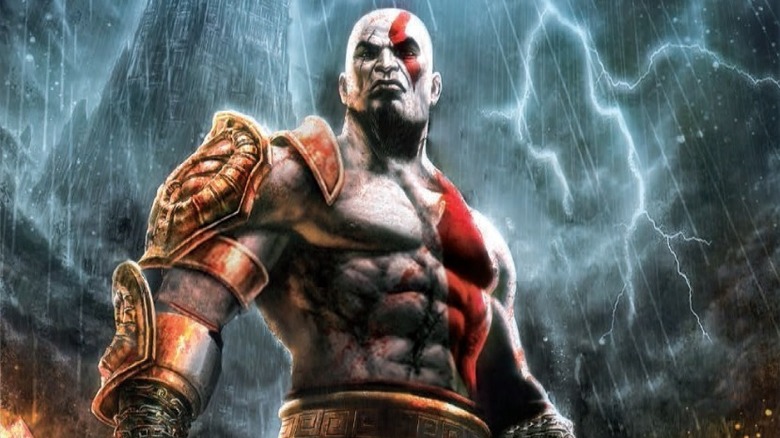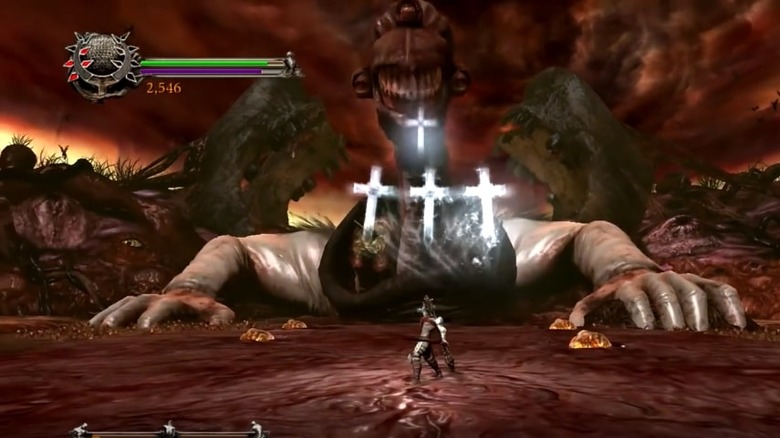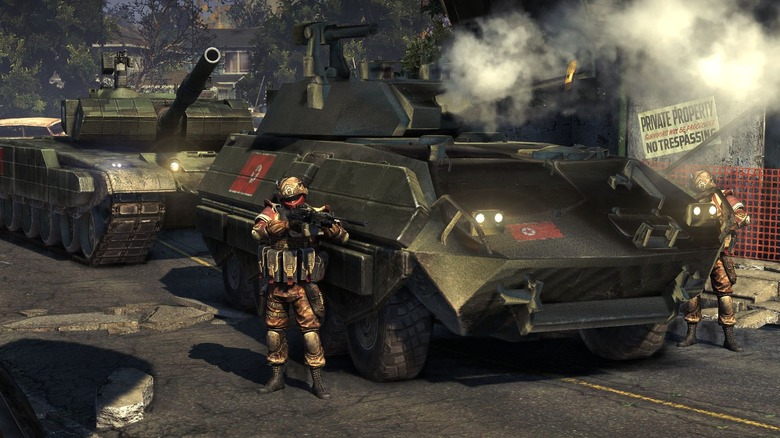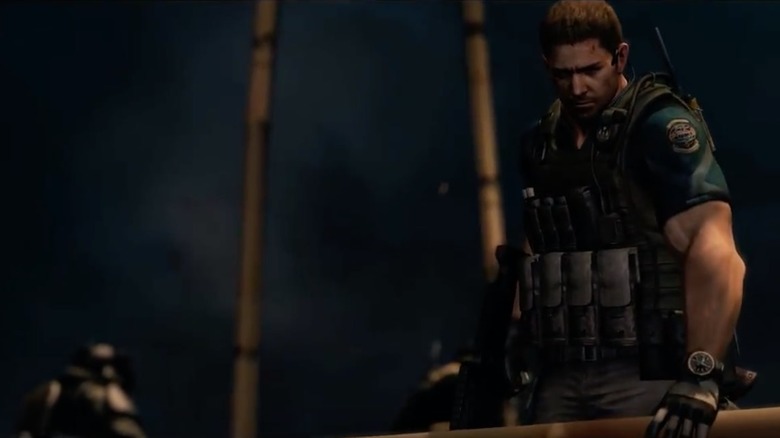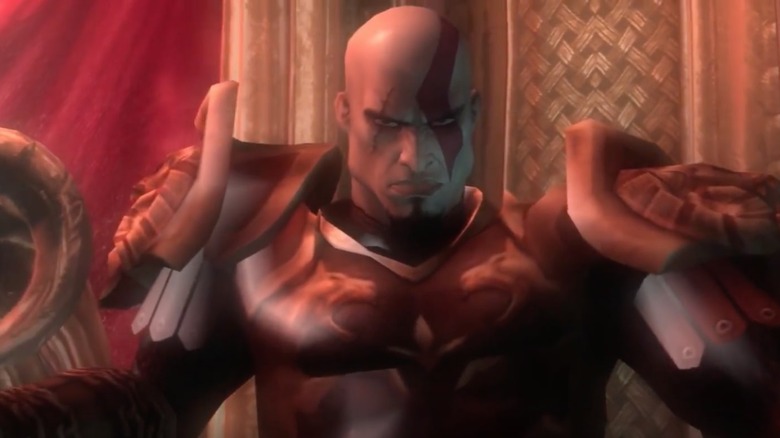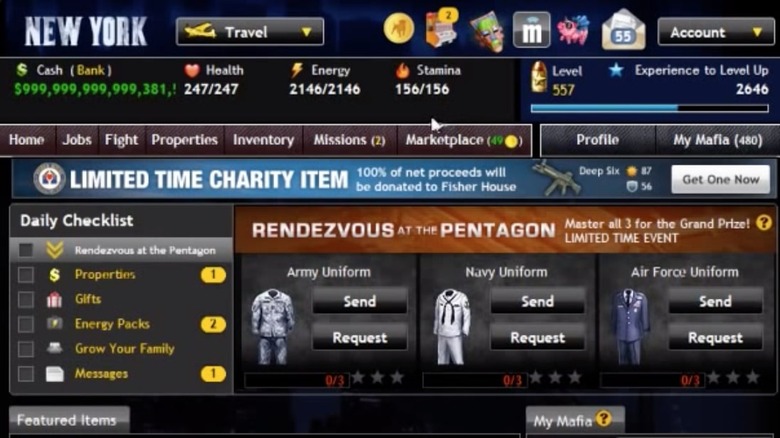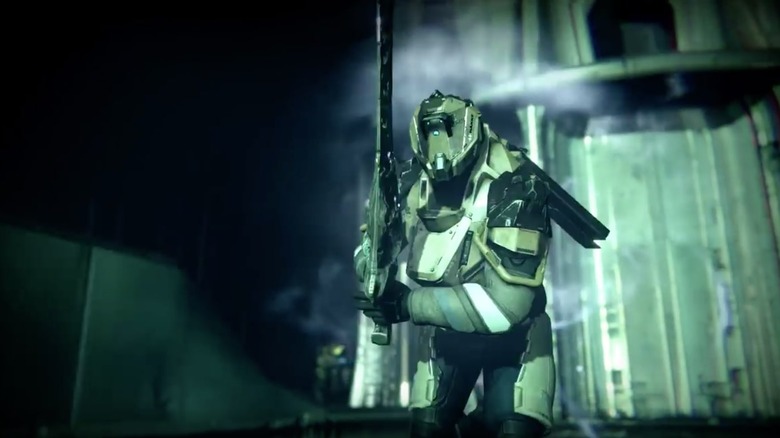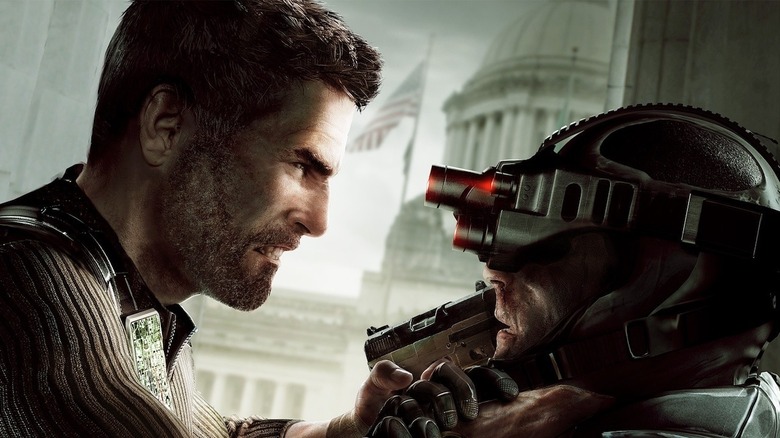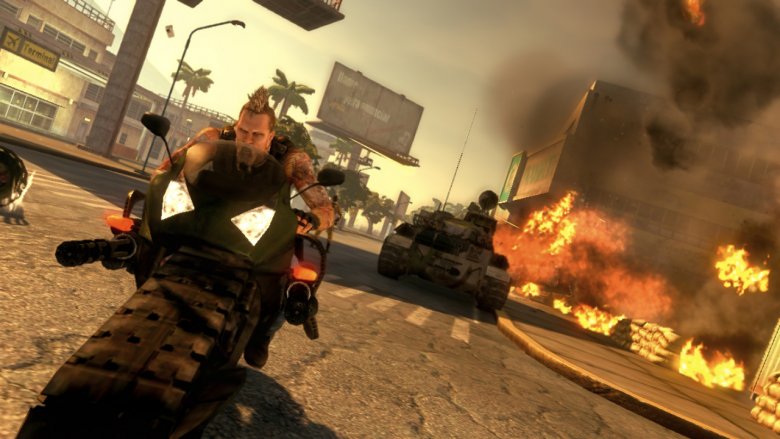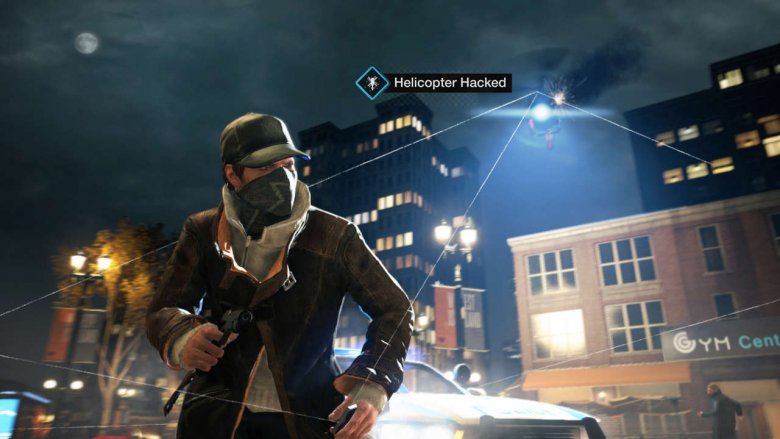Video Game Promotions That Totally Backfired
Marketing and advertising are necessary business tools that video games need in order to be successful from a sales standpoint. Without smart, targeted commercials, social media advertising, and public relations, many games would fail the moment they hit the shelves or digital stores. There are plenty of examples of smart video game marketing, including memorable TV spots for juggernaut franchises like Call of Duty and Halo, as well as viral sensations such as BioShock 2's wine bottles and Ocarina of Time 3D's Robin Williams commercial.
However, the industry has also seen a multitude of video game promotions that, upon reflection, beg the question, "What were the people in charge thinking?" Some were offensive but ultimately had no negative effects. Sega's Game Boy attack ad that challenged the intelligence of Nintendo fans fits into that category. Other promotions weren't lucky enough to get off scot-free and resulted in public backlash, fines, and even lawsuits. Here are some of the video game promotions that totally backfired.
Sin to win (Dante's Inferno)
Back in 2010, developer Visceral Games finished work on Dante's Inferno, a hack-and-slash action game loosely based on the first canticle of Dante Alighieri's Divine Comedy. In it, players assumed the role of a Templar knight version of Dante as he fought his way through the nine Circles of Hell to rescue his love. Published by EA, the title had a rocky path to release, mostly from a marketing standpoint. At Comic-Con 2009, the publisher put on a "sin to win" promotion, which asked con-goers to "commit acts of lust" by taking photos with booth models throughout the show. They would then need to upload those photos to social media or email them directly to EA. The lucky winner would receive a dinner and "sinful night with two hot girls, a limo service, paparazzi, and a chest full of booty."
The backlash came almost immediately, as people denounced the promotion for its objectification of women. Barely a day after announcing the contest, EA released a formal apology for its tone, clarifying that the "acts of lust" they were looking for were simply the photos with booth girls and absolutely nothing more. Also, the "Night of Lust" winner would receive a VIP, all expenses paid evening, but nothing, well, lustful. However, the damage was done, as the press slammed the promotion and the public outcry was heard all around the internet.
Red balloons (Homefront)
Homefront, a first-person shooter franchise from THQ, released in 2011 to extremely lukewarm reviews, causing the publisher's stock to dip by 21 percent in one day. However, the game's mediocre critical reception wasn't the only headache that THQ and developer Koas Studios had to deal with during the pre-release period. During GDC 2011, the marketing team behind Homefront staged a fake North Korean protest meant to "decry the North Korean regime and the treatment of its citizens." At the rally's end, the team released 10,000 red balloons, all GameStop-branded.
At first, the spectacle proved to be an enjoyable sight, but thanks to bad weather, most of the balloons quickly deflated, landing in the San Francisco bay. Understandably, environmental activists and much of the city's public weren't happy. Their anger only escalated when they released that the balloons were just garish advertisements for Homefront's pre-order bonus. The promotion attracted attention from city water control officials who slapped the game's PR firm TrashTalkFCM with $7,000 in fines.
Human-shaped meat (Resident Evil 6)
In September of 2012, Japanese game publisher Capcom set out on a unique, but extremely gross, promotional campaign leading up to the launch of Resident Evil 6. The campaign, which involved a series of staged murder scenes outside London media companies, crime scene photos, and fresh meat re-labeled as human meat sent to members of the press, culminated in a weekend-long publicity stunt at a "human butcher shop" called Wesker & Son (named after prominent Resident Evil antagonist Albert Wesker). The combination pop-up store and art installation opened to the public, allowing attendees to not only view exhibits created by professional food artist Sharon Baker, but also purchase edible meat products designed to look like human body parts.
On the surface, the pop-up shop had two goals: promote the new Resident Evil game and offer proceeds from the meat sale to Limbless Association, a UK nonprofit that helps amputees. However, the entire human meat campaign ended up being extremely disturbing. Capcom ended the promotion after one weekend, and it didn't help the game come close its sales goals. The publisher's financial report indicated that Resident Evil 6 sold 4.9 million units during the fiscal year, which was 2.1 million less than its original projected goal. It even placed some of the blame on "inadequate marketing."
A sacrificial goat (God of War 2)
Before the industry's current, dad-centric God of War, Sony developed the brutish hack-and-slash games that captured the hearts of button mashers all over the world. In 2007, the publisher embarked on the marketing push for God of War 2, which featured some interesting tactics. Over in Greece, Sony threw a promotional party for the game, centered around a decapitated goat. Essentially a theater demonstration, the stunt — which also included topless women feeding grapes to attendees — evoked the game's Greek mythology theme, but led to ire from animal rights activists.
Groups were angry at the sight of this goat, accusing the company of butchering an animal to sell its video games. In reality, Sony purchased the goat from an Athens-based butcher and returned it after the event. Regardless, centering a party around a slaughtered animal didn't sit well with critics or activists. The company later recalled over 80,000 copies of its official magazine due to published photos from the party and also released a statement acknowledging that they didn't meet their high standards of conduct.
$25,000 bills (Mafia Wars)
Fans of social network and mobile games likely have spent some time with Zynga's Mafia Wars. Originally released on Facebook and Myspace in 2008, the multiplayer game saw players taking control of gangsters and building up their own mafias. The game was a hit for the fledgling developer and led to a sequel in 2011. But before the sequel, Zynga wanted to make sure it got the most out of the free-to-play title, and with the help of a San Francisco-based advertising agency, it set out to market the game's Las Vegas iteration in unique ways.
"Unique" was one way to describe a particular guerrilla marketing stunt that the agency cooked up. "Illegal" was another, more accurate way. In August of 2010, Davis Elen Advertising promoted Mafia Wars: Las Vegas by slapping dozens of stickers, made to look like $25,000 bills, on San Francisco's sidewalks. On the surface, it was a harmless campaign, but ended up costing the city money. The city's Department of Public Works had to use steam cleaners to remove the stickers, something that took upwards of 45 minutes to do at every stickered area. City attorney Dennis Herrera threatened Zynga with legal action because of the stunt, demanding that the developer pay for the lengthy clean up. Luckily for Zynga, Davis Elen Advertising stepped up at the eleventh hour and shouldered the blame, paying $45,000 in fines.
Red Bull (Destiny: The Taken King)
To market Destiny's The Taken King expansion, publisher Activision partnered with Red Bull to create promotional cans of the energy drink containing codes for in-game XP boosts as well as a timed-exclusive quest. While nothing out of the ordinary — games have long partnered with food and drink companies — this particular promotion came at the absolute wrong time. The same week Activision announced the partnership, it also had dealt with outcry from fans surrounding the expansion's price and special editions. Loyal fans were rightfully upset that, to access exclusive content in the Collector's Edition, they would have to basically repurchase the base game and its two previous add-ons.
So, for Activision to announce something else with exclusive content that Destiny players would have to purchase didn't sit well. While the digital screams from fans were temporarily deafening, the real headaches came after the promotion launched. Players quickly found ways to cheat the code systems. First, they simply went to stores and copied the codes printed on the cans. They had no need to buy the pricey drink. Then, clever people figured out the code's algorithm, generating the codes themselves and rendering those codes, printed on Red Bull cans throughout US-based 7-Eleven stores, useless. This cross-promotion resulted in numerous headaches for a game already trying to quell an angry fanbase, but it didn't stop Activision from doing almost the exact same thing for Destiny 2's launch.
A fake gunman (Splinter Cell: Conviction)
While the promotions discussed thus far didn't exactly help their games, none of them resulted in real-life gunshots. In Auckland, New Zealand, a Splinter Cell: Conviction stunt nearly did. Prior to the 2010 game's release, Monaco Corporation, a marketing partner of developer Ubisoft, hired another outside firm to put on an event at a local bar. That company hired an actor, gave him a fake gun, and sent him into the popular nightlife spot.
Dozens of patrons reported that the man, who had bandaged hands, pointed a pistol at them. As they took cover, armed police entered the area, ready to shoot if necessary. While the authorities easily figured out that the gun was fake after taking it from the man, no one involved found the stunt amusing. Monaco's marketing manager Duane Mutu later released a statement saying, "This was by no means an attempt to get cops down there and get this sort of exposure. We do apologize, we shouldn't have had guns down there. It was just marketing gone wrong."
Free gas (Mercenaries 2)
Movies that have apocalyptic premises often features shots or scenes of crowded gas stations with frantic, panicked patrons. Well, one Mercenaries 2 promotion created real-life versions of those scenes in multiple cities . It started in 2008, as EA looked to build hype for Mercenaries 2: World in Flames. The publisher converted a gas station in North London to look like military barracks as part of its "Petrol to the People, For Free!" event. However, the highlight of the event was free gas until the pumps ran out. Starting at 6 a.m. local time, motorists could head to these gas stations and fill up for the low, low price of nothing.
Despite the same stunt going relatively smoothly in Los Angeles, the London promotion led to mass chaos. Giving away an expensive necessity like gas resulted in massive traffic, residents being late to work, and a lot of angry motorists. In London at the time, gas prices were extremely high, so a lot of people certainly needed the complimentary fill-up. However, the promotion did more harm than good and authorities ultimately shut things down earlier than expected, citing how irresponsible it was for EA to "recreate Venezuelan-style fuel riots on the streets of London."
A suspicious safe (Watch Dogs)
Here's a good rule to follow when doing video game promotion: don't do something that results in a visit from a bomb squad. The marketing team for Watch Dogs didn't follow that rule when promoting the game back in 2014. Australia's Ninemsn, a news and current events website, received a strange, black safe along with a suspicious letter that told a member of the press to "check your voicemail." Understandably, this rattled some nerves, and things only escalated when the reporter not only had no voicemail, but the pin code that was meant to open the safe didn't work. After trying to enter the code, the safe began to beep.
Fearing a potential explosive device, the company sent home its staff and called in bomb squad officers to open the safe in the office building's basement. What did they find after successfully opening it? Inside were a copy of Watch Dogs, a baseball cap, a beanie, and a note detailing the game's embargo. Ubisoft apologized for the ill-advised promotion, detailing that it sent the wrong pin code for the safe and failed to leave the necessary, instructional voicemail for the reporter.

